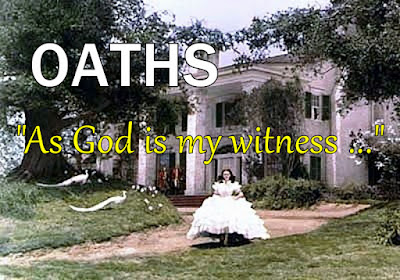A CROSS WITH A VIEW

Luke 15:1-3,11b-32
2 Corinthians 5:16-21
When
staying at a hotel in a scenic destination, everyone wants the
coveted "room with a view." The one people will pay
extra for just so they can open the curtains each morning and look
out and see the sun sparkling on a tropical sea or a pristine
spring-fed lake surrounded by majestic mountains. They want to
sip their morning coffee while gazing at the historic old buildings
of a European city or the narrow streets of a quaint, old village.
Sounds wonderful, doesn't it?
But the one we should pray for is priceless; it cost us nothing, but Jesus paid for it with his life. It's a cross with a view.
Stories
are powerful. They can heal broken lives and grieving hearts. A
story, like a parable, can give us hope, inspire us to action or convict our souls. They can
change how we look at things and give us a new perspective, a
different view of the world. That's why Jesus told them.
There was a man who had two sons. Each son was lost in his own way, and the man's heart grieved for them both. The younger son, tired of trying to follow all the rules and meet the expectations his family had of him, demanded his share of the family estate and hit the road for fast living, debauchery, and well, you get the picture.
The
elder son, dutifully remained on the family farm, probably not out of
love for the land or this family but for the reward of the lion's
share of his father's estate. In him, his father saw a heart
hardened by bitterness, jealousy, greed and entitlement. This
son broke his father's heart just as surely as the younger son's
rejection did.
As
Jesus told that story, he gazed into the eyes and the hearts of the
Pharisees and the Scribes, who were like the older brother. Their
hearts were hardened against him and against God by pride and
entitlement. The had been so busy making sure they and everyone
else followed the letter of the law that they had forgotten that
God's law is all about love, and that included loving the tax
collectors and sinners they scorned who were there also that day.
Did they realize they were the “older brother?” Did the
parable confronted the darkness of their hearts, and it made them
angry, frightened that the inheritance as "God's chosen people"
was threatened?
In
the crowd that day, were those whom the Scribes and the Pharisees and
the religious system had closed their hearts and their doors to.
They knew who they were. Society had branded them as prodigal sons
and daughters.they were prodigal sons and daughters. What they heard
was what their very souls were yearning for was possible, that God
was ready to welcome them into a personal relationship with Him with
a big hug full of forgiveness and unconditional love.
I
wonder if there were also those in the crowd who related to the
grieving father? The parable Jesus told confirmed their faith
in God and renewed their hope that, through the action of God's
love, their own prodigal son or daughter, and yes, maybe this
prodigal world would return home to welcoming arms.
The
crowd that gathered at the cross on the day Jesus died, looked very
much like the crowd he spoke to the day he told the parable of the
prodigal son and his older brother. There were sinners and the
rejected, the judgemental and close minded and the hopeful faithful,
and more.
Christ's
view from the cross extended far beyond that day. From there, he
could see generations who stretched from one end of time to the
other. There were the good and the bad, the saints and the sinners,
the ugly and the beautiful, the ordinary and the extraordinary folks.
You and I were there, too.
The
one thing we have in common with all those people is this: God so
loves us all that he offered up his one of a kind, unique son, as a
sacrifice to atone for our sins. He did that, so that who ever
faithfully responds to God's love and believes in Christ will be
welcomed back home with joy and open arms that envelop us in a hug of
God's love.
If we
take in the view from the cross and its context of unconditional,
self-sacrificing, tenacious and steadfast love, we will be surprised
and transformed by what we see. I know I was.
When
my husband and I first moved to Cedar Rapids, I visited several
United Methodist churches. One in particular stands out to me,
because God touched my heart in a very real way that day. It
was a small, new start church on the south side of Cedar Rapids. The
service was informal, the worship area open and simple with folding
chairs.
Some
people were dressed in what I would call "casual Sunday,"
but a lot of people were in blue jeans, some torn and faded, and
t-shirts. I saw "do-rags," piercings and tattoos.
With the smugness and self-righteousness of a pharisee, I
thought, "These people don't belong here. They don't even
know how to behave in church!"
And
then God spoke to my heart, "These people are what my church is
about.” I had forgotten that God loved these people as much as he
loved me; Christ died for them, too.
In
this season of Lent, we are reminded that, deserving or not, Christ
died for us all. He died for those who have rejected him, for
who in their sense of entitlement have forgotten that it's all about
love. He gave his life for those who yearn for God, but find
doors closed to them, and for the hopeful who find their faith
confirmed and work with Christ for the day when the prodigals of this
world come home.
Lent
also challenges us to take in the view from the cross. Will we take
up that challenge to see others as God sees them and to love and to serve them as Christ has loved and
served us?



Comments
Post a Comment